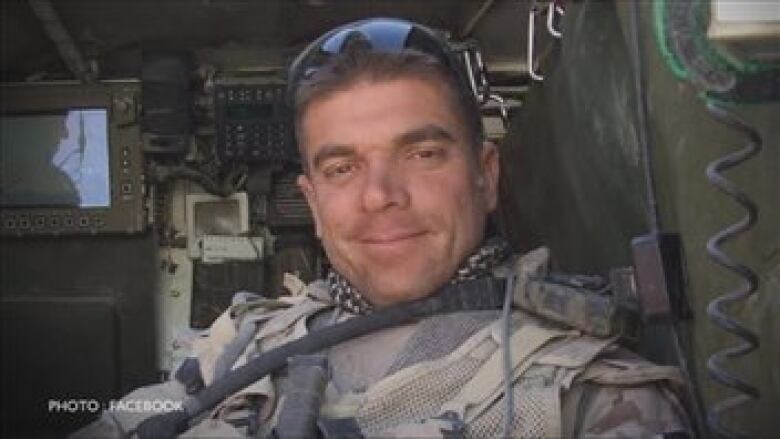Veteran says soldiers still struggle with trauma despite help
Stigma of mental illness follows soldiers who seek help
A Newfoundland veteran who has struggled since returning home from the war in Afghanistan says the battle continues for soldiers who deal with the stress of resuming civilian life, despite help from the military.
Rodney Pollard, who is originally from Sop's Arm, spent 11 years in the military — including two tours in Afghanistan. He says the struggle military personnel face once they come back home is severe.
Cpl. Alain Lacasse, from Quebec, and Master Cpl. Tyson Washburn, from Ontario, were both found dead earlier in March as the last of the Canadian troops returned from their Afghanistan mission.
Pollard, who now lives in Geary, N.B., said while it's tragic, it isn't necessarily surprising that veterans still feel compelled to need to take their own lives.

According to Pollard, these experiences never really leave you, and the mind switches back into military mode sometimes without warning.
Surgeries to his back and shoulders have forced him to retire from military service, but Pollard, who suffers from post-traumatic stress disorder (PTSD), said there are a lot of struggles soldiers face when they return to their civilian lives.
"I reached that dark place myself recently after coming home, and it's really … it comes down to [whether] your family and friends are better off without you," Pollard said.
'You feel like you're the burden'
He said he can sympathize with the soldiers who end up taking their lives, but people may not fully comprehend the motive.
"You feel like you're the burden to the family and that the family would function a lot better with you not around — I don't know how else to put it. If I had to guess, I'm sure that's probably … one of the things that went through their mind."
Family celebrations become a chore, Pollard said, and veterans find themselves struggling to fit back in to the family mould.
You're constantly in fear of being judged or ridiculed because you have a mental illness or a mental injury, or whatever you want to call it- Rodney Pollard
He said he had trouble sleeping, and even took an evening job delivering pizzas to be alone.
"You're there in body, and that's pretty much it. It's almost like you lose that ability to interact on a social level, and being able to lower the guard," he said.
He said simple things, like seeing a box on the side of the road, can re-ignite the war zone mentality.
"I've spent many a nights, many hours, trying to comprehend myself why going to Wal-Mart is such an anxiety-driven task," he said.
According to Pollard, focusing on his daughters was the only way to force himself out into society.
"I kind of just … found a way in my girls to realize that if I don't put myself in that situation, I'm not going to be able to overcome it."
Mental health stigma alive and well

"That stigma of, you have to put that weakness and everything behind you and you have to be 100 per cent focused and stuff, I mean, that's drilled into us," he said.
"But I mean, having the professionals and specialists there to be able to talk to and the doctors and stuff, they're there, but when you're going to see them ... you're constantly in fear of being judged or ridiculed because you have a mental illness or a mental injury or whatever you want to call it."
Pollard said that while he's moving on with his life, it's still a struggle for him to completely adapt to a civilian lifestyle.
"I wouldn't say that I'm 100 per cent in the clear, but there's certainly so many stressors and everything in life today that you just gotta give yourself a reason every single day to get up and fight it," he said.
Pollard is currently studying Child and Youth Services and Addictions in Frederiction.